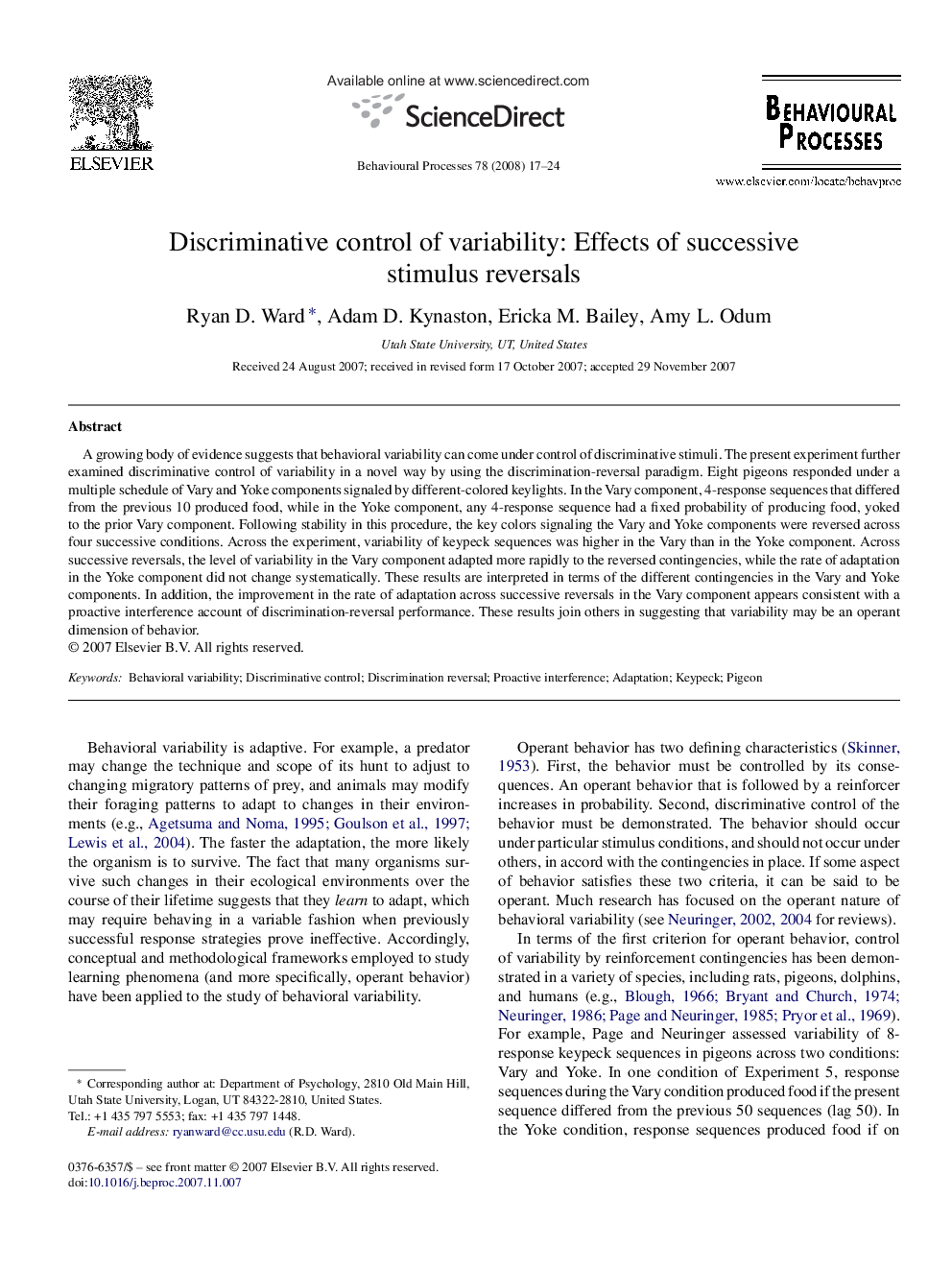| کد مقاله | کد نشریه | سال انتشار | مقاله انگلیسی | نسخه تمام متن |
|---|---|---|---|---|
| 2427588 | 1105968 | 2008 | 8 صفحه PDF | دانلود رایگان |

A growing body of evidence suggests that behavioral variability can come under control of discriminative stimuli. The present experiment further examined discriminative control of variability in a novel way by using the discrimination-reversal paradigm. Eight pigeons responded under a multiple schedule of Vary and Yoke components signaled by different-colored keylights. In the Vary component, 4-response sequences that differed from the previous 10 produced food, while in the Yoke component, any 4-response sequence had a fixed probability of producing food, yoked to the prior Vary component. Following stability in this procedure, the key colors signaling the Vary and Yoke components were reversed across four successive conditions. Across the experiment, variability of keypeck sequences was higher in the Vary than in the Yoke component. Across successive reversals, the level of variability in the Vary component adapted more rapidly to the reversed contingencies, while the rate of adaptation in the Yoke component did not change systematically. These results are interpreted in terms of the different contingencies in the Vary and Yoke components. In addition, the improvement in the rate of adaptation across successive reversals in the Vary component appears consistent with a proactive interference account of discrimination-reversal performance. These results join others in suggesting that variability may be an operant dimension of behavior.
Journal: Behavioural Processes - Volume 78, Issue 1, May 2008, Pages 17–24